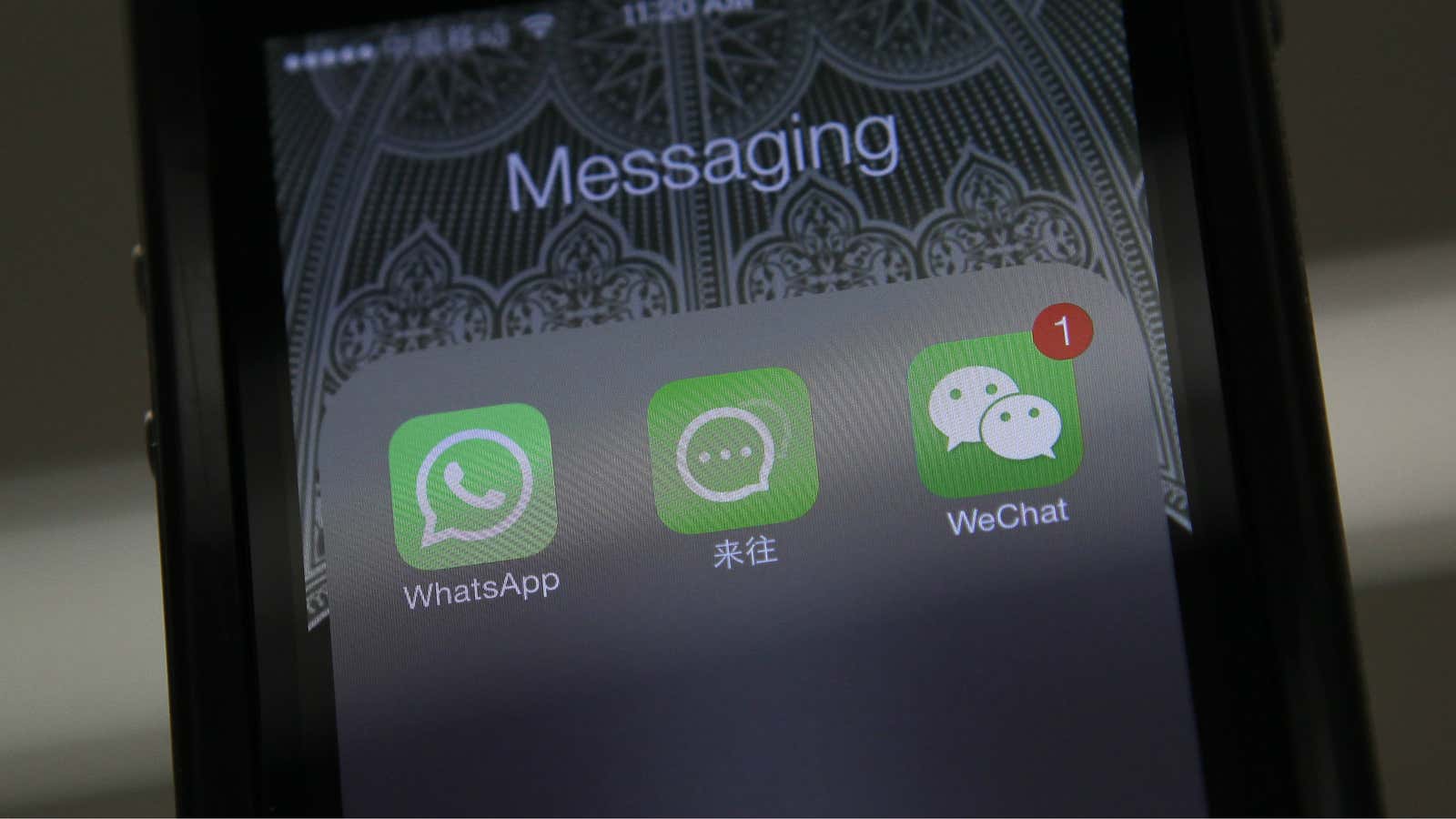The idea of paying for online media content by the piece has been floating around for some time now, but beyond the perennial think-piece and occasional startup, the concept hasn’t gained much traction.
In China, however, media micropayments might get their moment now that one of the nation’s largest online publishers has thrown its hat into the ring.
WeChat, which has 600 million monthly active users in China and abroad, has announced that it will broaden a micropayment system for writers who release posts through “official accounts”—public-facing chat rooms that in some cases double as publishing platforms for writers.
After reading an article, users can opt to “praise” the author, after which they can choose to donate cash to the author using WeChat payments, the app’s Paypal-esque mobile wallet. Increments range from 5 yuan (less than $1) to 200 yuan (about $30).
WeChat is possibly the only social network in the world, besides Facebook, with the muscle to make this possible. Andrew Schorr, who runs the WeChat-centric startup Grata from Beijing, says that WeChat’s near-monopoly on smartphone usage in China makes such a foray feasible.
“Basically every smartphone owner in China is on WeChat, and there are no other alternative payment forms [besides WeChat Payments] that need to be offered—it’s WeChat-only article publishing, WeChat-only payments, and WeChat controls the tip button,” says Schorr.
The feature is still in beta-testing and for now remains geared toward hobbyist writers. Payments are donation-based and not mandatory—they’re a “Like” button with cash attached. They’re also only available for individual accounts attached to personal bank cards, rather than business accounts typically run by registered media companies. (WeChat offers various types of public-facing accounts for businesses and individuals looking to attract a following). But Schorr says it’s possible the system could blossom into something impactful for the media industry.
“What WeChat has subtly done is condition users to get comfortable exchanging very small amounts of cash to groups of strangers. Now it’s being extended to this praise button,” says Schorr. “We could see this expand to business as the next logical step—it’s just a matter of speed to market so it’s much easier [to start] with individuals,” he adds.
Self-made media stars have been emerging throughout China through WeChat and on other social portals, like Youku Tudou, one of the country’s many Youtube-esque websites. One such star, Luo Zhenyu, a former CCTV anchor, posts 60-second clips on WeChat and earns money from his followers by directing them to an e-commerce page with books for sale. Luo has more than 197,000 followers on Sina Weibo (WeChat doesn’t reveal follower numbers for public accounts), and Youku Tudou just invested in his media business.
Micropayments will unlikely take just any WeChat writer to those heights immediately. But the makers behind WeChat’s next viral video might find themselves with some cash in a tip jar.




